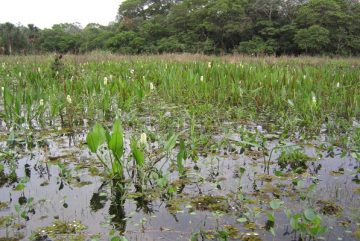Mark Johnson (IRES Faculty) and Michael Lathuilliere (PhD Candidate)- 2 new publications
Kai Chan – Inducted into Royal Society of Canada’s College of New Scholars, Artists and Scientists
Congratulations to IRES faculty member Kai Chan for being named as one of 70 new members of the Royal Society of Canada’s College of New Scholars, Artists and Scientists!
Six UBC faculty have been named as members of the Royal Society of Canada’s College of New Scholars, Artists and Scientists. Those named to the College represent the emerging generation of scholarly, scientific and artistic leadership in Canada.
See the links below for more information:
https://research.ubc.ca/ubc-faculty-named-members-rsc-college-new-scholars-artists-and-scientists
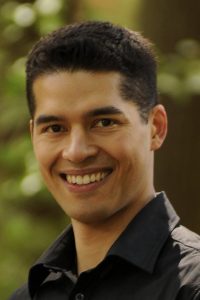
Assistant Prof Position in Regulation and Policy
September 19 2017
We seek an interdisciplinary scholar in the area of regulation and policy, with a focus on sustainability and resilience. We especially encourage applications from scholars who study topics such as regulatory and governance issues surrounding public utilities and other critical infrastructure, smart technology, mobility and transportation, sustainable development, or the role of regulation in achieving a sustainable and resilient economy. We welcome scholars employing a variety of methodological approaches.
More information is attached and can be found at: http://glenn.osu.edu/employment/
This position is partially funded by Ohio State’s Discovery Themes Initiative, a significant faculty hiring investment in key thematic areas in which the university can build on its culture of academic collaboration to make a global impact. The successful candidate will join a highly collaborative interdisciplinary community of scholars in the Sustainable and Resilient Economy (SRE) program (https://discovery.osu.edu/focus-areas/sustainable-economy/) including faculty from Social and Behavioral Sciences, Environmental Sciences, Business, Law, and Engineering. The SRE program seeks to advance sustainability science by developing a more holistic understanding of sustainable and resilient production and consumption systems, human- environment interactions, and innovations in sustainable technologies and governance.
Successful applicants will be expected to participate in collaborative teams and interdisciplinary research on sustainability and resilience topics. The position begins fall 2018. Salary will be commensurate with the candidate’s experience and qualifications. Applicants must have completed or be nearing completion of all Ph.D. degree requirements. Successful candidates will likely have doctorates in public affairs, public policy, public administration, sociology, political science, economics, geography, law, business or a related field. Highly desirable candidates will have practical experience, university teaching experience, a strong potential for developing a successful research portfolio, and/or demonstrated success in working with diverse populations and a commitment to diversifying the profession.
Applications received by September 22, 2017, are guaranteed full consideration. To apply, please send a letter of application, curriculum vitae, and three professional reference letters to Glenn-SRERegulation@osu.edu.
Congratulations Harold Eyster — International Doctoral Fellowship Winner!
Harold Eyster received the International Doctoral Fellowship.
This is a new award, intended to support top international students beginning UBC Vancouver doctoral programs.
Click here for more information on Harold.


Photo credit: Julian S. Yates
Congratulations Alejandra Echeverri Ochoa — Killam Doctoral Scholarship Winner!
Alejandra Echeverri Ochoa is a Killam Doctoral Scholarship recipient for 2017-2018.
The Killam Doctoral Scholarships are provided annually from the Izaak Walton Killam Memorial Fund for Advanced Studies. These are the most prestigious graduate awards available at UBC, and are awarded to the top doctoral candidates in the annual Tri-Agency / Affiliated Fellowships competition.
Click here for more information on Alejandra.
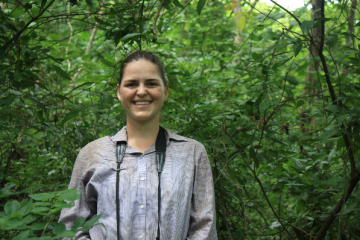
December 7, 2017: IRES Special Seminar
Speaker: Bradley Eyre
(Last Seminar for Term 1)
IRES Seminar Series
Time: 12:30pm to 1:30pm (every Thursday)
Location: AERL Theatre (room 120), 2202 Main Mall
***************************************************************************
Role of shallow water carbonate sediment dissolution in the future accretion of coral reefs in an acidifying ocean
Abstract: Ocean acidification (OA) is predicted to have a significant impact on the future of coral reefs, mainly through the reduced formation of calcium carbonate (CaCO3). However, the dissolution of stored CaCO3 has largely been overlooked in the OA community. CaCO3 sediments represent the largest reservoir of carbonate minerals in coral reefs and result from the accumulation and storage of CaCO3 material over thousands of years. Benthic chamber incubations in permeable CaCO3 sediments show that aragonite saturation in the overlying water is a strong predictor of CaCO3 sediment dissolution and most reefs show a similar response to increasing average pCO2 (OA). However, every reef shows a different net sediment dissolution starting condition and the effect of end of century OA conditions on net sediment dissolution is different for every reef. Empirical relationships between average aragonite saturation and net ecosystem calcification, coral calcification and sediment dissolution from reefs around the globe are used to quantify future changes in the CaCO3 accretion of coral reefs. Quantifying the global dissolution kinetics of permeable CaCO3 sediments is clearly just as important as estimating calcification rates when predicting how OA will impact coral reef ecosystems.
This seminar will not be filmed.

Bio: Professor Bradley Eyre is a biogeochemist and the foundation Director of the Centre for Coastal Biogeochemistry at Southern Cross University, Australia. His publications include topics such as whole ecosystem carbon, nitrogen and phosphorus budgets, net ecosystem metabolism estimates, benthic and pelagic production and respiration, dissolved organic carbon fluxes, carbon stable isotopes (fluxes and assimilation), carbon burial and air-sea GHG flux estimates, benthic denitrification, benthic habitats and seascapes, historical and ecosystem comparisons, ocean acidification, hypoxia, eutrophication, submarine groundwater discharge, permeable sands and carbonate sediment dissolution. Professor Eyre has 157 articles in Scopus listed journals (H-index = 44, Total citations >5000, Google Scholar; H-index = 35, Total citations>3500, Scopus) and has attracted over >$20 million in funding. He has mentored 14 early- and mid-career researchers and supervised 32 PhD students.
Professor Eyre is a Visiting Professor in IRES from December 2017 to February 2018.
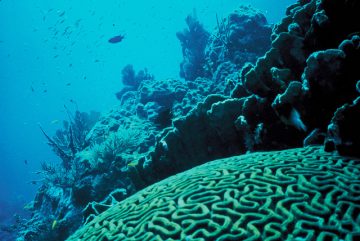
Photo Credit: The Coral Reefs from flickr / Creative Commons
November 23, 2017: IRES Faculty Seminar
Speakers: FuturAgua Team (Tim McDaniels, Douw Steyn, and others) plus poster session in AERL Lobby afterwards
IRES Seminar Series
Time: 12:30pm to 1:30pm (every Thursday)
Location: AERL Theatre (room 120), 2202 Main Mall
***************************************************************************
The FuturAgua project: Fostering regional drought resilience in Northwestern Costa Rica through international collaborative action research.
The FuturAgua project is an international, multidisciplinary, action-oriented research program involving three teams of researchers,funded by granting agencies in three countries, all focused on applied research to help build resilience to drought in the dry tropical northwest part of Costa Rica. The project was conceptualized, developed, and carried out in close collaboration with civil society groups and regional agencies that work to address important water questions in the region. This presentation will address the context, design, process, and key findings of the research conducted by UBC researchers,with input from the team members at Carnegie Mellon University. National University of Costa Rica professor Andrea Suarez will provide regional perspectives on the project. The researchers will highlight some of the factors that led to the main successes of the project, and also reflect on some of the challenges of conducting a research project of this kind.
After the seminar, there will be a poster session to showcase the project’s main research findings. Lunch will be served (RSVP required)
This seminar will not be filmed.
Click here for poster.
Thursday, November 23, 2017
Aquatic Ecosystems Research Laboratory Building
2202 Main Mall, UBC Point Grey Campus
Vancouver
Research Seminar: 12:30-1:30pm, AERL Theatre (room 120)
Poster Session + Lunch: 1:30-2:30pm, AERL Foyer
RSVP required for lunch: futuraguaproject@gmail.com
PRINCIPAL INVESTIGATORS
Tim McDaniels
Professor, School of Community and Regional Planning
Douw Steyn
Professor Emeritus, Earth, Ocean and Atmospheric Sciences (EOAS)
Mark Johnson
Associate Professor and Canada Research Chair, Institute for Resources, Environment and Sustainability (IRES) and EOAS
Kai Chan
Professor, IRES
INTERNATIONAL GUEST
Andrea Suarez
Director of the Centre for Mesoamerica for Sustainable Development of the Dry Tropics (CEMEDE), National University of Costa Rica
RESEARCHERS
Silja Hund
PhD Student EOAS
Laura Morillas
Postdoctoral Research Fellow IRES and EOAS
Paige Olmsted
Postdoctoral Fellow IRES, Visiting Fellow Copenhagen Business School
Alejandra Echeverri
PhD Student IRES
Daniel Karp
Former Killam Postdoctoral Fellow IRES, Assistant Professor, Department of Wildlife, Fish and Conservation Biology UC Davis
Click here for poster.
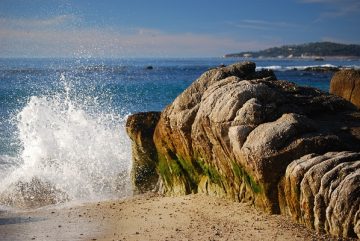
Photo credit: Fran Kimmelman-Finn from flickr/Creative Commons
October 26, 2017: IRES Professional Development Seminar
Speakers: Alaya Boisvert, Ann Rowan, David Boyd, Adriane Carr
Environmental Policy and Government Relations Panel Discussion
IRES Seminar Series
Time: 12:30pm to 1:30pm (every Thursday)
Location: AERL Theatre (room 120), 2202 Main Mall
***************************************************************************
Environmental Policy and Government Relations Panel Discussion
Abstract: Environmental policies are crafted by governments, but influenced by stakeholders and lobbyists. In this seminar we will talk to a panel of people outside of academia, in both governmental and government relations roles, to learn about what it’s like to build environmental policies from inside and outside the government.
Speaker Bios:
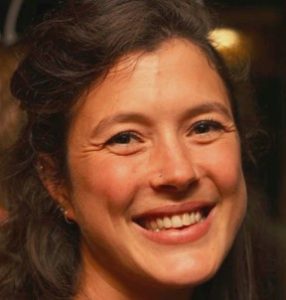
Alaya Boisvert joined the David Suzuki Foundation in 2013 to campaign for the right to a healthy environment. As the manager of government relations for the Blue Dot project, she worked towards federal recognition of the right to clean air and water, safe food and a stable climate. Alaya now works as the public engagement manager with the aim of empowering people.

David Boyd is the newest faculty member at IRES. He is an environmental lawyer and an expert on human rights and the environment. He has co-chaired Vancouver’s Greenest City initiative, worked in the Privy Council Office, and consulted with the Federal government on a variety law reform efforts.

Ann Rowan is a manager for Collaboration Initiatives at Metro Vancouver where she is involved in the Ecological Health Plan, the Regional Food System Strategy and other initiatives related to waste prevention, regional prosperity and regional climate action. Ann came to Metro Vancouver from the David Suzuki Foundation.
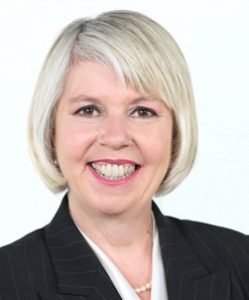
Adriane Carr is a Vancouver City Councilor with the Green Party. She co-founded B.C.’s green party in 1983, and served as its leader from 2000-2006. She served as Elizabeth May’s deputy in the federal Green Party from 2006-2014. She has an academic background in urban geography and taught for 12 years at Langara College.
This seminar will not be filmed.
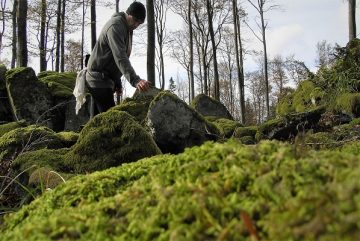
Photo credit: marcostetter from flickr/ Creative Commons
Message from UBC Faculty of Science: UBC environmental sustainability research hub welcomes new Director
Milind Kandlikar has been appointed director of UBC’s Institute for Resources, Environment and Sustainability (IRES) for a four-year term, effective July 1, 2017.
Kandlikar’s research focuses on the intersection of technology innovation, human development and the global environment, and he played a played a major role in shaping UBC’s new professional Master of Public Policy and Global Affairs program. He served as interim director of IRES in 2014 and 2015.
IRES is a problem-focused and curiosity-driven interdisciplinary research institute and graduate program, with expertise in a wide range of environment and sustainability topics. The Institute’s mission is to foster sustainable futures through integrated research and learning about the linkages among human and natural systems.
“Milind is a very well-respected scholar with excellent publication, grant, administrative and graduate supervision records,” said Simon Peacock in making the announcement. “I look forward to working with him to build on the Institute’s successful research and graduate training initiatives, and helping to advance UBC’s already strong reputation in sustainability.”
Kandlikar earned his PhD at Carnegie Mellon University in 1995, and was a research fellow at Harvard University from 1996 to 1997. After stints at Carnegie Mellon University and Vice President of MetaHeuristics in Santa Barbara, he joined UBC in 2002 and was promoted to professor in 2012. He currently holds a joint appointment in IRES and in the Liu Institute.
“I’d like to express my profound thanks to Terre Satterfield for serving as an excellent director of IRES for the past five years,” added Peacock.
“Terre helped develop UBC’s professional Master of Public Policy and Global Affairs program, hired outstanding faculty members, developed sustainability teaching programs, and promoted world-class interdisciplinary scholarship while maintaining her own high-quality research program.”
The IRES directorship search committee consisted of Stephanie Chang, Mark Johnson, Jiaying Zhao, Roger Beckie, Gillian Harris and Alejandra Echeverri.
Media Contact
Chris Balma
balma@science.ubc.ca
604.822.5082
c 604-202-5047
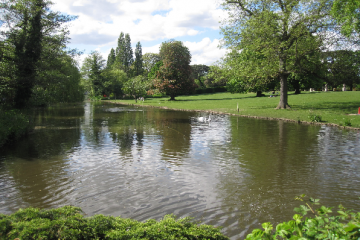
Photo credit: NH3 from flickr/Creative Commons
September 28, 2017: IRES Professional Development Seminar
Speakers: IRES Postdocs Panel
IRES Seminar Series
Time: 12:30pm to 1:30pm (every Thursday)
Location: AERL Theatre (room 120), 2202 Main Mall
***************************************************************************
Pursuing a Postdoc
Abstract: Increasingly the path of the academic includes one or more post-doctoral fellowships. Four of our IRES postdocs will join us in frank conversation about their experiences. They will cover everything from the mundane to the theoretical about what it is like to be a young researcher beyond grad school. Please bring questions if you have them.
This seminar will not be filmed.
Bios:

Dawn Hoogeveen is a human geographer by training and completed her PhD here at UBC. She holds an MA from Simon Fraser University and a BA (hons) from Carleton. Her work concerns resource regulations, mining law and policy pertaining to environment, human rights, and culture. Her postdoc work is funded by a Mitacs Elevate grant under the direction of Terre Satterfield and in collaboration with the Firelight Group.
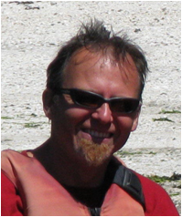
Ed Gregr has spent his adult life pursuing a mix of academic and employment opportunities. He completed his PhD with Kai Chan in 2016 and is currently an Adjunct Professor at IRES working a post-doc job part-time. He enjoys making maps, especially of analyses that have not previously been mapped, and hopes to continue doing so in both academic and consulting settings.

Laura Morillas studies water resources in water-limited ecosystems and how climate change affects them. She received her PhD from The Experimental Station of Arid Zones (EEZA) in Spain before completing a postdoc at The University of New Mexico. Here at UBC she works with Mark Johnson doing agricultural research in Costa Rica and Brazil.

Lisa Powell is jointly appointed in IRES and at the University of the Fraser Valley. She works with the Centre for Sustainable Food Systems and UVF’s Agriburban Research Centre. She completed a Ph.D. and M.A. in American Studies and Sustainability from the University of Texas at Austin, M.S. in mathematics from Vanderbilt, and B.A. in mathematics from Harvard. Her work focuses on food systems and conflicts and negotiations over agricultural land use.
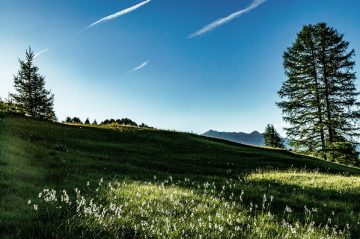
Photo Credit: James Baker from flickr/ Creative Commons
